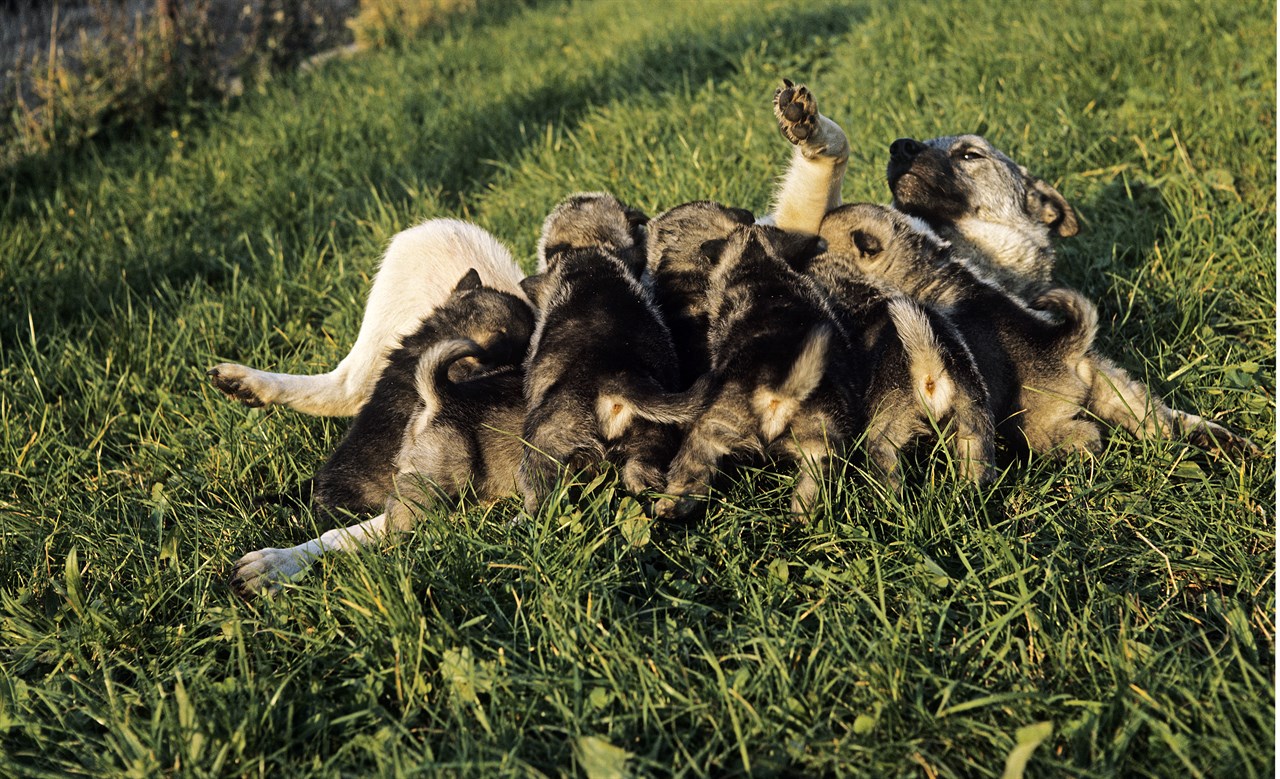Disadvantages of Owning a Norwegian Elkhound

While Norwegian Elkhounds make wonderful companions for the right owners, like any breed, they have specific characteristics and traits that may be considered disadvantages by some prospective owners. Here are some potential downsides to owning a Norwegian Elkhound:
Independent Nature
Norwegian Elkhounds have an independent streak, which can make them less eager to please than some other breeds. This independence may make training more challenging for first-time dog owners or those who prefer highly obedient dogs.
High Exercise Needs
Elkhounds have substantial exercise requirements. They need daily physical activity and mental stimulation to stay happy and well-behaved. Failing to meet their exercise needs can result in behavioural issues, including restlessness and destructiveness.
Vocal Tendencies
Elkhounds are known for their vocal nature. They tend to bark, howl, and make noise, which may not be suitable for noise-sensitive individuals or those living in close proximity to neighbours.
Shedding and Grooming
Elkhounds have a thick double coat that sheds year-round and more heavily during seasonal changes. This shedding can require regular grooming and cleaning around the home, which may not be ideal for individuals with allergies or those who prefer low-maintenance breeds.
Prone to Health Issues
While generally healthy, Elkhounds can be prone to specific health issues, including hip dysplasia, progressive retinal atrophy (PRA), and skin allergies. Potential owners should be prepared for possible veterinary expenses and regular check-ups.
Not Ideal for Apartment Living
Due to their exercise needs and vocal tendencies, Norwegian Elkhounds are not well-suited for apartment living. They thrive in homes with access to a securely fenced yard or open outdoor spaces.
Stubbornness
Elkhounds can be stubborn at times, making it important for owners to be patient and consistent in training. Their independent nature means they may not always follow commands immediately.
Moderate Shedding
While their thick coat provides protection in cold weather, it also means they shed year-round. Regular grooming and cleaning up after shedding may be necessary for a tidy home.
Prone to Roaming
Elkhounds have a strong prey drive and a tendency to roam if not properly secured. They may chase after small animals or venture off if not in a securely fenced area.
Need for Socialisation
Proper socialisation is crucial for Elkhounds to ensure they are well-behaved and comfortable around people and other animals. This requires time and effort from the owner.
In summary, Norwegian Elkhounds are loyal and loving companions, but they come with specific challenges that potential owners should be aware of. Their independent nature, exercise needs, grooming requirements, and vocal tendencies may not be suitable for everyone. Prospective owners should carefully consider these factors and be prepared to invest time, effort, and resources into meeting the breed's needs.
Norwegian Elkhound puppies for sale
- Find Norwegian Elkhound puppies for sale in ACT
- Find Norwegian Elkhound puppies for sale in NSW
- Find Norwegian Elkhound puppies for sale in NT
- Find Norwegian Elkhound puppies for sale in QLD
- Find Norwegian Elkhound puppies for sale in SA
- Find Norwegian Elkhound puppies for sale in TAS
- Find Norwegian Elkhound puppies for sale in VIC
- Find Norwegian Elkhound puppies for sale in WA